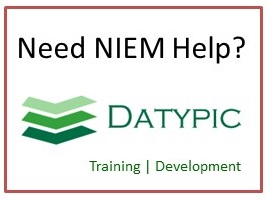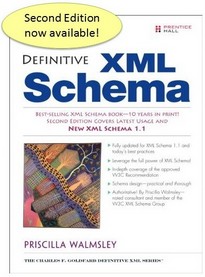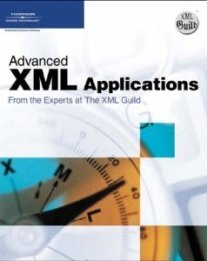gml:DynamicFeatureCollection
A gml:DynamicFeatureCollection is a feature collection that has a gml:validTime property (i.e. is a snapshot of the feature collection) or which has a gml:history property that contains one or more gml:AbstractTimeSlices each of which contain values of the time varying properties of the feature collection. Note that the gml:DynamicFeatureCollection may be one of the following: 1. A feature collection which consists of static feature members (members do not change in time) but which has properties of the collection object as a whole that do change in time . 2. A feature collection which consists of dynamic feature members (the members are gml:DynamicFeatures) but which also has properties of the collection as a whole that vary in time.
Element information
Namespace: http://www.opengis.net/gml/3.2
Schema document: external/ogc/gml/3.2.1/dynamicFeature.xsd
Type: gml:DynamicFeatureCollectionType
Properties: Global, Qualified
Content
- Sequence [1..1]
- gml:metaDataProperty [0..*]
- gml:description [0..1]The value of this property is a text description of the object. gml:description uses gml:StringOrRefType as its content model, so it may contain a simple text string content, or carry a reference to an external description. The use of gml:description to reference an external description has been deprecated and replaced by the gml:descriptionReference property.
- gml:descriptionReference [0..1]The value of this property is a remote text description of the object. The xlink:href attribute of the gml:descriptionReference property references the external description.
- gml:identifier [0..1]Often, a special identifier is assigned to an object by the maintaining authority with the intention that it is used in references to the object For such cases, the codeSpace shall be provided. That identifier is usually unique either globally or within an application domain. gml:identifier is a pre-defined property for such identifiers.
- gml:name [0..*]The gml:name property provides a label or identifier for the object, commonly a descriptive name. An object may have several names, typically assigned by different authorities. gml:name uses the gml:CodeType content model. The authority for a name is indicated by the value of its (optional) codeSpace attribute. The name may or may not be unique, as determined by the rules of the organization responsible for the codeSpace. In common usage there will be one name per authority, so a processing application may select the name from its preferred codeSpace.
- gml:boundedBy [0..1]This property describes the minimum bounding box or rectangle that encloses the entire feature.
- Choice [0..1]from subst. group gml:location
- gml:validTime [0..1]gml:validTime is a convenience property element.
- Choice [0..1]
- gml:historyA generic sequence of events constitute a gml:history of an object. The gml:history element contains a set of elements in the substitution group headed by the abstract element gml:AbstractTimeSlice, representing the time-varying properties of interest. The history property of a dynamic feature associates a feature instance with a sequence of time slices (i.e. change events) that encapsulate the evolution of the feature.
- gml:track
from subst. group gml:history - gml:dataSource [0..1]Evidence is represented by a simple gml:dataSource or gml:dataSourceReference property that indicates the source of the temporal data. The remote link attributes of the gml:dataSource element have been deprecated along with its current type.
- gml:dataSourceReference [0..1]Evidence is represented by a simple gml:dataSource or gml:dataSourceReference property that indicates the source of the temporal data.
- gml:dynamicMembers [1..1]
from type gml:AbstractGMLTypefrom group gml:StandardObjectPropertiesfrom type gml:AbstractFeatureTypefrom type gml:DynamicFeatureTypefrom group gml:dynamicProperties
Attributes
| Name | Occ | Type | Description | Notes |
|---|---|---|---|---|
| gml:id | [1..1] | xsd:ID | The attribute gml:id supports provision of a handle for the XML element representing a GML Object. Its use is mandatory for all GML objects. It is of XML type ID, so is constrained to be unique in the XML document within which it occurs. | from type gml:AbstractGMLType |
Used in
- Type geo:FeatureType (Elements geo:Feature, geo:LocationFeature)
- Type gml:ArrayAssociationType (Element gml:members)
- Type gml:DynamicFeatureMemberType (Element gml:dynamicMembers)
- Type gml:FeatureArrayPropertyType (Element gml:featureMembers)
- Type gml:FeaturePropertyType (Elements gml:featureMember, gml:featureProperty)
- Type gml:ProcedurePropertyType (Element gml:using)
- Type gml:TargetPropertyType (Elements gml:target, gml:subject)
Substitution hierarchy
- gml:AbstractObject
- can be substituted with gml:AbstractGML
- can be substituted with gml:AbstractFeature
- can be substituted with gml:DynamicFeature
- can be substituted with gml:DynamicFeatureCollection
- can be substituted with gml:DynamicFeature
- can be substituted with gml:AbstractFeature
- can be substituted with gml:AbstractGML
Sample instance
<gml:DynamicFeatureCollection gml:id="ID"> <gml:metaDataProperty> <gml:GenericMetaData>Any text, intermingled with: <!--any element--> </gml:GenericMetaData> </gml:metaDataProperty> <gml:description>string</gml:description> <gml:descriptionReference/> <gml:identifier codeSpace="http://www.example.com/">string</gml:identifier> <gml:name>string</gml:name> <gml:boundedBy> <gml:Envelope> <gml:lowerCorner>1.0 1.0</gml:lowerCorner> <gml:upperCorner>1.0 1.0</gml:upperCorner> </gml:Envelope> </gml:boundedBy> <gml:location> <gml:MultiGeometry gml:id="ID"> <gml:metaDataProperty>... </gml:metaDataProperty> <gml:description>string</gml:description> <gml:descriptionReference/> <gml:identifier codeSpace="http://www.example.com/">string</gml:identifier> <gml:name>string</gml:name> <gml:geometryMember>... </gml:geometryMember> <gml:geometryMembers>... </gml:geometryMembers> </gml:MultiGeometry> </gml:location> <gml:validTime> <gml:TimeInstant gml:id="ID"> <gml:metaDataProperty>... </gml:metaDataProperty> <gml:description>string</gml:description> <gml:descriptionReference/> <gml:identifier codeSpace="http://www.example.com/">string</gml:identifier> <gml:name>string</gml:name> <gml:relatedTime>... </gml:relatedTime> <gml:timePosition>12:00:00</gml:timePosition> </gml:TimeInstant> </gml:validTime> <gml:history> <gml:MovingObjectStatus gml:id="ID"> <gml:metaDataProperty>... </gml:metaDataProperty> <gml:description>string</gml:description> <gml:descriptionReference/> <gml:identifier codeSpace="http://www.example.com/">string</gml:identifier> <gml:name>string</gml:name> <gml:validTime>... </gml:validTime> <gml:dataSource>string</gml:dataSource> <gml:position>... </gml:position> <gml:speed uom="">1.0</gml:speed> <gml:bearing>... </gml:bearing> <gml:acceleration uom="">1.0</gml:acceleration> <gml:elevation uom="">1.0</gml:elevation> <gml:status>string</gml:status> <gml:statusReference/> </gml:MovingObjectStatus> </gml:history> <gml:dataSource>string</gml:dataSource> <gml:dataSourceReference/> <gml:dynamicMembers> <gml:DynamicFeature gml:id="ID"> <gml:metaDataProperty>... </gml:metaDataProperty> <gml:description>string</gml:description> <gml:descriptionReference/> <gml:identifier codeSpace="http://www.example.com/">string</gml:identifier> <gml:name>string</gml:name> <gml:boundedBy>... </gml:boundedBy> <gml:location>... </gml:location> <gml:validTime>... </gml:validTime> <gml:history>... </gml:history> <gml:dataSource>string</gml:dataSource> <gml:dataSourceReference/> </gml:DynamicFeature> </gml:dynamicMembers> </gml:DynamicFeatureCollection>



